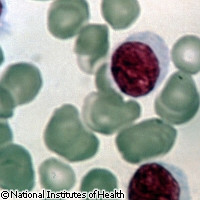Researchers discover methadone can kill leukaemia
A new treatment to fight leukaemia may be on the cards. Germany-based researchers say methadone, an agent given by specialists to addicts to stop them from abusing opioid drugs, has the potential to kill leukaemia cells. The results of their study were recently published in Cancer Research, a journal of the American Association for Cancer Research. Methadone can be particularly helpful for patients whose cancer no longer responds to chemotherapy and radiation, the researchers say. What is particularly beneficial about the use of methadone is that this agent does not adversely affect non-leukaemic cells. 'Methadone kills sensitive leukaemia cells and also breaks treatment resistance, but without any toxic effects on non-leukaemic cells,' explains Dr Claudia Friesen from the University of Ulm's Institute of Legal Medicine. 'We find this very exciting, because once conventional treatments have failed a patient, which occurs in old and also in young patients, they have no other options.' Using methadone in leukaemia, and particularly in lymphoblastic leukaemia T-cell lines and human myeloid leukaemia cell lines, is a first in the world of leukaemia research. Dr Friesen, who is the senior author of the study, and her colleagues, tested methadone in leukaemia cells in laboratory culture because this cancer also expresses the opioid receptor. The findings showed that methadone has a striking effect on non-resistant leukaemia cells, similar to what chemotherapy and radiation treatments have on patients. Two significant outcomes of the study were: non-leukaemic peripheral blood lymphocytes remained unaffected by the methadone, while leukaemia cells, which were resistant to multiple chemotherapies and to radiation, were killed. Based on their research, the team says methadone activates the mitochondrial pathway within leukaemia cells. This in turn activates caspases (i.e. enzymes) that play a key role in apoptosis (i.e. programmed cell death). While the process is similar for chemotherapy drugs, methadone activated caspases in sensitive leukaemia cells and triggered stronger caspases activation in resistant leukaemia cells, the researchers said. Single doses of methadone used to kill the cancer cells were greater than doses used for the treatment of opioid addiction, the team said. However, they discovered through this study that a daily low dose of methadone can be used to get the same effect. As regards the addictive effects of methadone, Dr Friesen said addiction to this agent can be broken much more simply than addiction to true opioids. 'Addiction shouldn't be an unsolvable problem if methadone is ever used as an anti-cancer therapy,' she explained. The researchers have started evaluating methadone treatment in animal models of human leukaemia, Dr Friesen said. The treatment of methadone in other cancers is possible, she added. German researchers developed methadone in the 1930s. It is a low-cost agent that can be used as an opioid substitute in the treatment of addiction.
Countries
Germany

